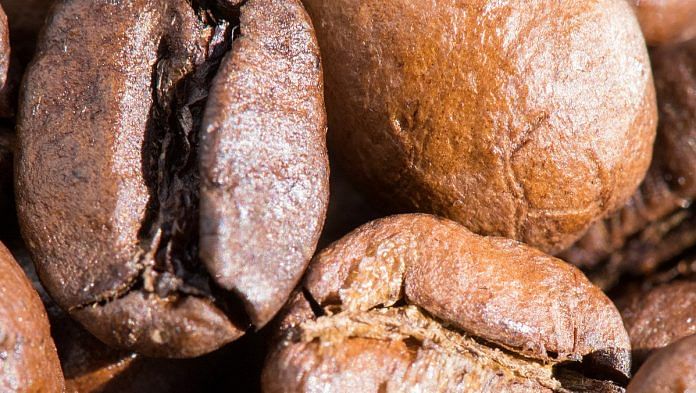It is common for many people to drink black coffee before they go to the gym, run, swim, or dance. Across the world, coffee is well-known for its ability to boost energy and is the most consumed stimulant in the world. It contains biologically active substances such as caffeine, theobromine, theophylline, and chlorogenic acid, which work together to provide the energy boost you need to exercise. Theobromine and theophylline are the main stimulants in cocoa and are found in small amounts in coffee. Of the four stimulants, caffeine has been studied extensively. The beverage is known to boost metabolism and mobilise fats from adipose cells. In fact, caffeine is the main ingredient in most fat burners found in the market.
But is there enough scientific research to support coffee as a fat-burning agent?
Caffeine and increased metabolism
RMR, or resting metabolic rate, is a measure of the calories you burn at rest. A person’s RMR is the most significant factor in determining how quickly and easily they can lose weight. A higher RMR directly correlates to easier weight loss. In 1989, a research study observed that 100 mg of caffeine increased the RMR of lean and post-obese volunteers by 3 to 4 per cent, and repeated doses at two-hour intervals over 12 hours increased energy expenditure by 8 to 11 per cent for both groups.
According to the researchers, caffeine can affect energy balance and may promote thermogenesis when used in the treatment of obesity. According to a 2004 study conducted on eight healthy adult men, the increased RMR is caused by elevated fatty acid oxidation. The results showed that caffeine consumption increased energy expenditure by 13 per cent and doubled the turnover of lipids, of which 24 per cent were oxidised and 76 per cent recycled. The authors noted, however, that lipid mobilisation alone is not sufficient to cause lipid oxidation.
It is interesting to note that a 1995 study found that caffeine stimulation of thermogenesis and lipid oxidation is less effective in obese than in lean individuals. According to this study, lipid oxidation increased by 29 per cent in lean subjects, but only by 10 per cent in obese subjects.
Therefore, caffeine certainly increases metabolism, but the effect may vary, depending on factors such as age, weight, and lifestyle.
Also read: Who said moderate drinking is good for your health? Try the right vegetables instead
Caffeine, fat mobilisation, and fat loss
Caffeine increases the release of epinephrine, a hormone that stimulates the nervous system, sends signals to the adipose cells, and directs them to break down fats. Activated sweat gland density and fatty acid oxidation increased in ten healthy men who took caffeine in a high-quality clinical study. Fat loss doesn’t always happen by releasing fats from adipose tissue. Losing fat depends on a negative energy balance, which means burning more calories than you consume.
Several clinical trials have been conducted to examine the effects of caffeine on fat loss. In some trials, coffee was included as part of a customised diet plan for fat loss. A 24-week-long randomised control trial conducted in 2020 involved 126 overweight individuals and reported that consuming four cups a day of caffeinated coffee for 24 weeks was associated with a modest loss of fat mass. In another study, a blend of green and roasted coffee consumption was found to be associated with a significant reduction of body fat percentage in 52 participants who drank the blend for eight weeks. The results of a prospective cohort study corroborated these findings.
How much is not too much?
Drinking coffee increases fat oxidation, fat mobilisation, and metabolism. Even so, anything in excessive amounts is harmful, so we should know how much coffee is safe to consume per day. The amount of caffeine found in one cup of coffee can vary between 50 to 400 mg. A comprehensive review in 2006 concluded that moderate intake of coffee — about 3 to 4 cups per day providing 300-400 mg/day of caffeine — is not harmful to human health.
A 2003 study found that caffeine intake at a dosage up to 400 mg per day is not associated with adverse effects such as general toxicity, cardiovascular effects, changes in adult behavior, cancer, and effects on male fertility. Further, caffeine sensitivity is highly variable. Many people can tolerate caffeine beyond 400 mg/day, but some might feel restless, anxious, dizzy, and irritated if they consume a large amount of coffee within a short span of time. If you observe such symptoms, it’s important to remove coffee from your daily diet altogether.
Also read: Should you fall for anything labelled ‘diet’? Think again on diet soda
In a nutshell
In the short term, coffee boosts metabolism and accelerates fat loss. But there is no evidence to support the same result in the long term. Your weight loss will not be maximised if you rely solely on coffee. For best results, you need a customised diet. That said, it’s worth mentioning that a cup of black coffee is a powerhouse of antioxidants and a popular stimulator to jump start your day or workout.
Dr Subhasree Ray is Doctoral Scholar (Ketogenic Diet), a certified diabetes educator, and a clinical and public health nutritionist. She tweets @DrSubhasree. Views are personal.
(Edited by Humra Laeeq)



